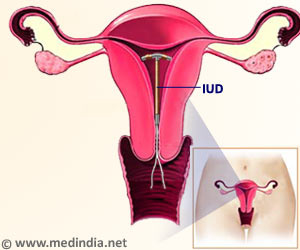A testosterone patch aimed at boosting the sex drive of women with low hormone levels caused by womb and ovary removal may not work and its long-term safety is unknown.
A testosterone patch aimed at boosting the sex drive of women with low hormone levels caused by womb and ovary removal may not work and its long-term safety is unknown.
Sold by US company Procter and Gamble under the brand name Intrinsa, the patch releases small amounts of testosterone, which is a naturally occurring sex hormone in both men and women.It has been approved for use in many European countries for a condition termed hypoactive sexual desire disorder, or HSDD, which can be triggered by "surgical menopause." Intrinsa was rejected by the US Food and Drug Administration.
In a review of several clinical trials, the Drug and Therapeutics Bulletin, published by the British Medical Journal group, found flaws in the design of most of the tests and pointed to what it said was troubling side effects.
The journal challenged the selection criteria of the women who participated in the trials and pointed out that HSDD was, in some cases, diagnosed on the basis of short, unverified questionnaires.
A significant number of women in the studies who were given placebos without any active ingredients reporting improved sex drive, which suggests that low hormone levels might not have been the problem, it said.
Furthermore, the improvements reported were small. And the fact that some of the women were already having sex twice or three times a month before they entered the trials also raised questions about whether they really had a poor sex drive to start with, it said.
The two largest trials, involving more than 500 women each, reported side effect rates of around 75 percent, mainly skin reactions at the sites where the patches had been applied.
Other common unwanted side effects, occurring in up to one in 10 women, were acne, excess hair, hair loss, breast pain, weight gain, insomnia, voice deepening, and migraines.
"The long term safety of the treatment is unknown," the study said, noting that trials had lasted a maximum of 24 weeks. "Unwanted side effects are common and not always reversible. For all these reasons, we cannot recommend Intrinsa for use in women with sexual dysfunction."
Source-AFP
ARU/S














